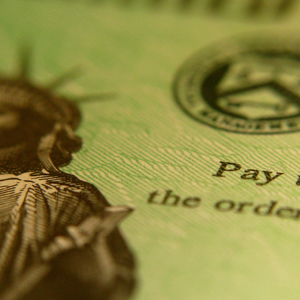What should the government spend its money on? With a growing national debt this has become an important question. Economists see the government’s role in providing goods and services to be one that fills a need. The government should pay for things that make our lives better but that the private market cannot or will not provide. Listen to this story from Planet Money to learn the reasons why government has decided to pay for public goods such as lighthouses and autopsies.
Listen to the story
GUY RAZ: Lawmakers have spent a lot of time lately debating what to do about the country’s growing deficit. In doing so, they’re wrestling with the question that goes back to the beginning of the Republic: What should the government spend its money on?
Well, fear not. There is actually consensus among most economists on at least two things they say governments should pay for: lighthouses – and probably autopsies.
David Kestenbaum, of our Planet Money team, reports.
DAVID KESTENBAUM: Lighthouses are the classic example of what economists call a public good.
PROFESSOR CHARLIE WHEELAN (Public Policy, University of Chicago): Public good is something that we all need, that will make our lives better – but that the market will not and cannot provide.
KESTENBAUM: This is Charlie Wheelan. He teaches public policy at the University of Chicago. Think about lighthouses, he says. If the government doesn’t build lighthouses, where would the money come from? Sure, someone could go around to ships’ captains and say: Hey, we’re going to build the lighthouse; want to contribute? But people will just say: No, thanks, I don’t need one. I’m a good sailor.
Prof. WHEELAN: And you’re just going to use our lighthouse without paying for it – because we can’t do anything. We can’t say, close your eyes when you sail past this rocky point.
(Soundbite of laughter)
Prof. WHEELAN: With every other good, if you don’t pay for it, if you don’t buy the sneakers at Walmart, you just don’t get to walk with them out of the store. And if you do, we’ll arrest you. We can’t do that for the lighthouse.
KESTENBAUM: That seems like a sound argument, but we did some checking anyway.
OK, Jeff. Give us name and credentials.
Mr. JEFF GALES (Executive Director, U.S. Lighthouse Society): Jeff Gales, U.S. Lighthouse Society executive director.
KESTENBAUM: Jeff Gales says this is basically right. There were some privately built lighthouses. Then in 1789, the government set up what would become the U.S. Lighthouse Service.
Mr. GALES: Prior to the establishment of the U.S. Lighthouse Service, I mean, you didn’t have lighthouses on rocky shoals or in the middle of the ocean. I mean, those are places where it was really expensive to build.
KESTENBAUM: So, general agreement on lighthouses. Also, most economists would agree it makes sense for governments to pay for a military, since that won’t arise on its own; ditto with a court system.
Charlie Wheelan says some unexpected things also count as public goods, like autopsies.
Prof. WHEELAN: The Journal of the American Medical Association has been arguing for 15 years, at least, that there’s a public health problem because we’re not doing enough autopsies. The autopsy rate has plummeted from 40-some percent down to, I think, single digits.
KESTENBAUM: If we add more autopsies, we’d know more about how people die. So collectively, we all want them. And yet, no individual really has an incentive to pay for one. They don’t see the benefit.
Prof. WHEELAN: There’s none for the person being autopsied. It’s a little late for that.
KESTENBAUM: The family thinks yuck, autopsy – which leaves the doctor. But think about it from the doctor’s perspective.
Prof. WHEELAN: Best case, what you find in the autopsy confirms the diagnosis. Then, yes, I was right. It turns out it was this kind of cancer and so on. It turns out to be extremely common, much more than you would think, that there were either undiagnosed conditions, misdiagnosed conditions. So this person, best case he was right, worst case he’s going to be looking at malpractice. So the person who is in the best position to encourage autopsy often will not.
KESTENBAUM: So you argue this is basically a lighthouse.
Prof. WHEELAN: This is a lighthouse.
KESTENBAUM: Charlie Wheelan did find one private company that does autopsies. So we called 1-800-Autopsy. We got Vidal Herrera, the founder.
Mr. VIDAL HERRERA (Founder, 1-800-Autopsy): The American people are our customers. Anytime a death occurs, if they don’t have anybody to do an autopsy, they can call 1-800-Autopsy, and we’ll help them.
KESTENBAUM: But even Herrera agrees the government should be paying for autopsies.
So there. We now have the beginning of an economist-approved list of things the government should be doing: autopsies, lighthouses, courts, defense.
But then, Wheelan says, we get to the hard questions. How much for defense? What about health care? Education? Those don’t meet the strict definitions of public goods, but most governments end up getting involved with them anyway.
David Kestenbaum, NPR News.
 © 2010 National Public Radio, Inc. Used with the permission of NPR. All rights reserved.
© 2010 National Public Radio, Inc. Used with the permission of NPR. All rights reserved. Vocabulary
- autopsy – an examination of a body after death to determine the cause of death
- lighthouse – a tower with a beacon light to warn or guide ships at sea
- public good – goods, often supplied by the government, for which use by one person does not reduce the quantity of the good available for others to use (non-excludable), and for which consumption cannot be limited to those who pay for the good (non-rival or shared consumption)
- private good – a good that provides benefits only to the purchaser. If you have not purchased the good you can be prevented from using it (excludable); one person’s use diminishes another person’s enjoyment of that good (rival)
Listening Comprehension Questions
- Why are autopsies and lighthouses important enough for government to spend tax dollars on?
- As public goods, how are autopsies and lighthouses alike? How are they different?
- What are the reasons a ship captain and a pilot might disagree on having the government pay for a lighthouse?
- What are the reasons a doctor might not want an autopsy performed on a patient? Why would the government want to pay for an autopsy?
- Why does it make sense for our government to pay for military defense or the court system?
Discussion Themes
- How can something such as education be both a public and a private good?
- What do you think the government should pay for that it isn’t paying for now?
Teacher’s Guide
Activate student knowledge: Ask your students “What has government done for you today?” Many will respond that government has done nothing for them. Display the online interactive “An Ordinary Day” and work through the examples of how government has influenced their day.
Explain that government-provided goods and services, such as the ones identified in the website, are called “public goods” and have unique characteristics – they are non-rival and non-excludable. To define these two terms, have students compare two goods such as a candy bar and the street your school is located on. Ask the following questions.
- If you don’t pay for a candy bar in a vending machine, can you be prevented from eating that candy bar? (Yes.)
- Is someone who doesn’t live in our city and pay taxes be prevented from driving on the street? (No.)
- If one person eats a candy bar, does this prevent others from eating the same candy bar? (Yes.)
- If one person drives down the street, does this prevent others from driving down the street? (No.)
- Who benefits from eating a candy bar? (The person who eats it.)
- Who benefits from having a road to drive down to get to school? (Everyone who uses it.)
Your street is a public good because you cannot prevent someone from using it who hasn’t paid for it (non-rival) and because your use of the street doesn’t prevent others from using it, too (non-excludable).
The candy bar is a private good that provides benefits only to the purchaser. If you have not purchased the good you can be prevented from using it (excludable). One person’s use diminishes another person’s enjoyment of that good (rival).
Show the interactive drop and drag activity: Public vs. Private Goods Use these examples to reinforce the definitions of private and public goods.
Introduce the story: Why does the government pay for some goods and services but not for others? In this audio story, you will hear examples of two goods that government does pay for – lighthouses and autopsies. Listen for the reasons why the government has decided to spend money on these goods. Do they fit the definition of public goods?
Active listening supports: Choose one of the following listening organizers to support student understanding as they listen to the story.
- Have students complete the Public vs. Private? chart where they identify the type of good and explain why. Discuss their answers as a class. This can be done before or after students listen to the story.
- The Public Goods chart will guide student listening as they takes notes to understand the definition of public goods.
- Language Identification organizer
Reflect on the story: Take time for student reflection on the audio story and discussion questions to check for understanding. Have students play the simulation The Fiscal Ship as a follow-up activity. This simulation has students decide what the government should spend its money on and, at the same time, forces them to make choices that must also balance the federal budget.
Extension activity: Schools for Sale This role playing activity allows students to apply economic reasoning as they explore the costs and benefits of “for profit” schools.
Listening Organizers
External Materials
- Interactive – An Ordinary Day: The Impact of Government/Congress
- Reinforcement – Drop and Drag Activity: Public vs. Private Goods
- Interactive – Fiscal Ship
- Lesson Plan to go with simulation
- The United States Lighthouse Society website: Videos of lighthouses in action
- Lesson plan: The Mystery of is it Mine or Ours?


